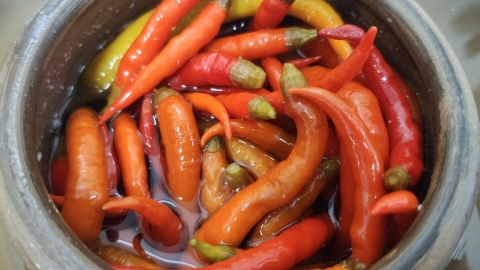What foods should patients with ankylosing spondylitis avoid eating?
Generally, patients with ankylosing spondylitis should avoid spicy and irritating foods, raw or cold foods, high-sugar foods, high-fat foods, and allergenic foods, as these may exacerbate inflammatory responses or affect disease stability. Detailed explanations are as follows:

1. Spicy and irritating foods: Such as chili peppers, Sichuan peppercorns, ginger, garlic, and similar items. These foods can irritate the gastrointestinal mucosa and may worsen systemic inflammation, leading to increased pain in the lower back and joints, which is detrimental to disease control. Patients should minimize consumption.
2. Raw, cold foods: Such as chilled beverages, sushi, cold salads, and cold-natured fruits. Consumption of cold foods may impair spleen and stomach function, hinder the circulation of qi and blood, and potentially irritate the joints, worsening joint stiffness and pain, especially during active phases of the disease. These should be avoided.
3. High-sugar foods: Such as candies, cakes, pastries, and sugary beverages. Excessive sugar intake may disrupt metabolism, lead to weight gain, increase joint burden, and indirectly promote inflammation, which is detrimental to disease stability. Patients should control sugar intake and opt for low-sugar diets.
4. High-fat foods: Such as fried foods, fatty meats, animal organs, and cream-based products. High-fat foods are calorie-dense and may lead to obesity, increasing pressure on the spine and joints. Certain fat metabolites may also intensify inflammation. Patients should choose low-fat options such as lean meats, fish, and soy products.
5. Allergenic foods: Such as seafood, mangoes, and pineapples. If patients are allergic to these foods, consumption may trigger allergic reactions like skin itching and swelling, which could indirectly exacerbate inflammation and lead to disease flares. Patients must identify and strictly avoid allergenic foods.
In addition to dietary adjustments, patients should adhere to standardized treatment, engage in appropriate rehabilitation exercises, maintain a healthy sleep schedule, and avoid excessive fatigue. Combining these measures with dietary management can better stabilize the condition and preserve joint function.








